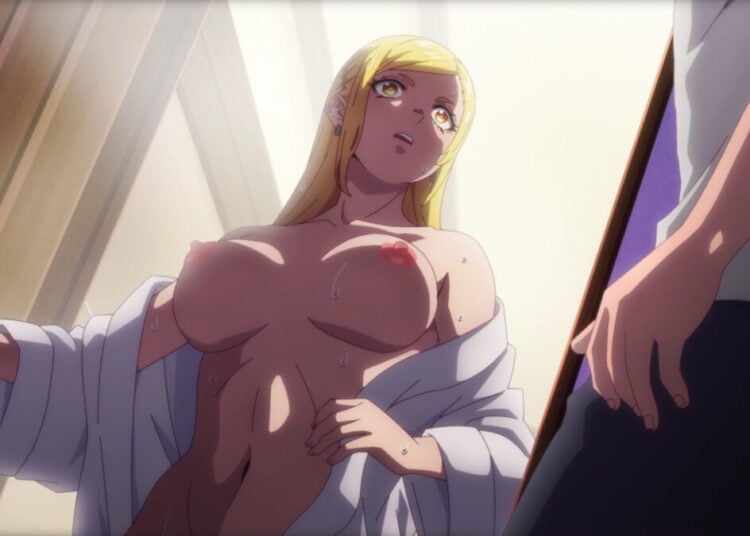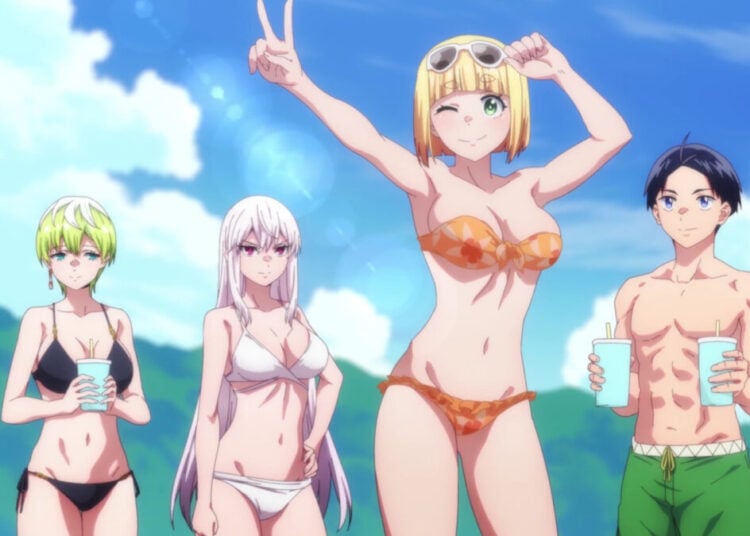When it comes to Japan’s top anime studios, Production I.G. has certainly earned a spot among the giants. Yet while its track record is nothing to scoff at, it stands to reason that not everything it’s made over the past 33 years is gold, or even average. Delve deep enough, and you’ll find the sort of dredge that’s hard to fathom. Abunai Sisters Koko & Mika (2009) is one such black sheep, which is remarkable coming from the studio that brought you Neon Genesis Evangelion: The End of Evangelion and Psycho-Pass.
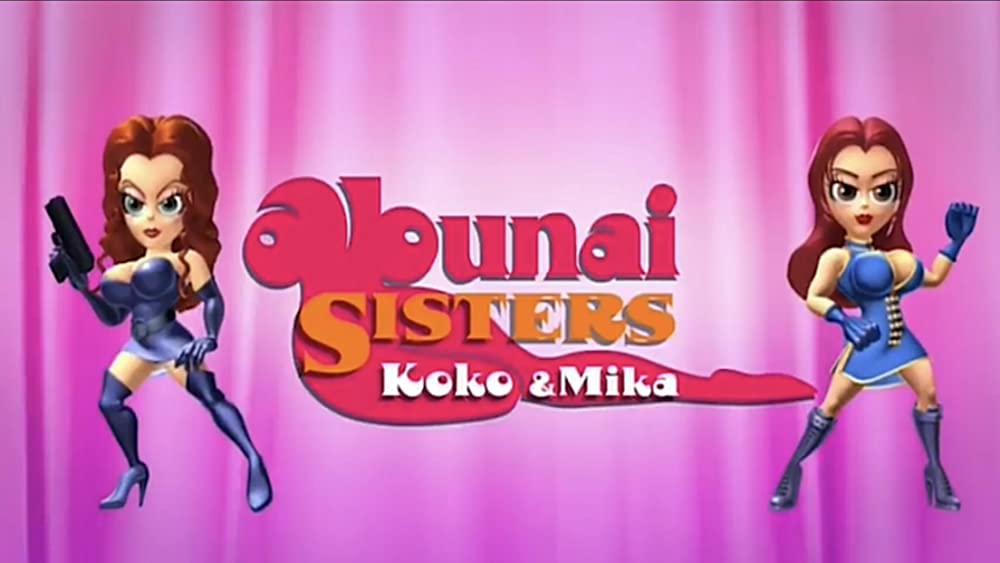
Just as strange are the circumstances behind the existence of this 10-episode CG romp. For one, it was created explicitly as a vehicle for tabloid celebrities Kyoko and Mika Kano to promote themselves among otaku, with Pony Canyon Inc. on board as producer. In addition to illustrator Susumu Matsushita doing the character designs, it was also directed, written, and storyboarded by one Hiroyuki Nakao: known for the live-action Time Scoop Hunter series (2009-14) and a number of award-winning short films, yet had no real experience in the anime industry. Despite its bare-bones announcement at Otakon Baltimore in 2008, there were also plans for merchandise and crowdfunded bonuses for those who could pitch in.
These in themselves give enough red flags regarding the quality of the show. Somehow, Abunai Sisters manages to surpass those presumptions, in all the wrong ways. With a rating of 2.49 on MyAnimeList – which is barely an improvement over the Tenkuu Danzato Skelter Heaven (2004), yet worse than Twinkle Nora Rock Me! (1985) – you might be wondering just how much of a trainwreck this is?

The short answer would be a simple yes. The longer version, however, is another story.
Adventures in Failure
Abunai Sisters Koko & Mika is rather upfront about what it is. It follows the “adventures” of siblings Koko and Mika: two celebrities who moonlight as secret agents. Together, they protect the mysterious “boobie stone” from the clutches of aging starlet Madam Hokuruda and lackey Paparazzi Matsumoto. In actuality, in the spirit of gag shorts, there’s no real plot. Instead, you have a series of vignettes of the heroines in various (mis)adventures, ranging from a shopping trip to doing make-up and fitting clothes. Though by no means the most enticing of setups, there’s no added effort to spice up the situational comedy or put a more original spin on it. Things only get worse from there.
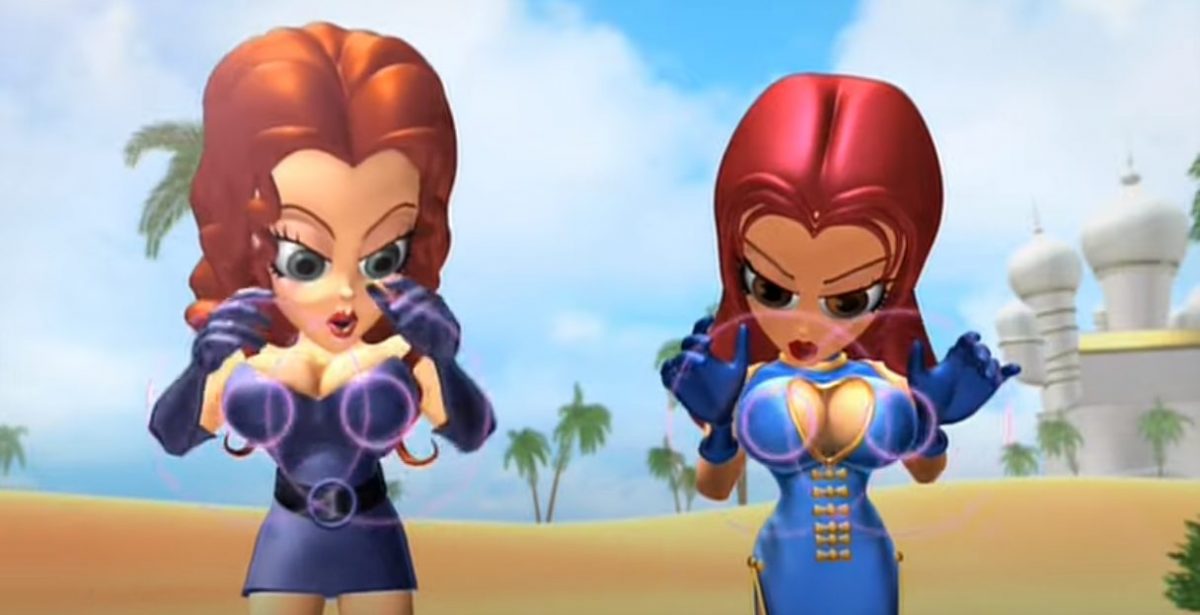
The leads themselves are superficial to a tee, being obsessed with their status as celebrities, even though you never find out just what they do. Indeed, they smugly flaunt their fame and obscene wealth like entitled brats, undermining whatever “self-made woman” pretensions the real Kano sisters likely intended. Which isn’t getting to how the action girl aspects are nigh-nonexistent. They spend more time squealing and being poorly trapped than showing their skills, at least when they’re not simply relying on their breasts to do much of the work.
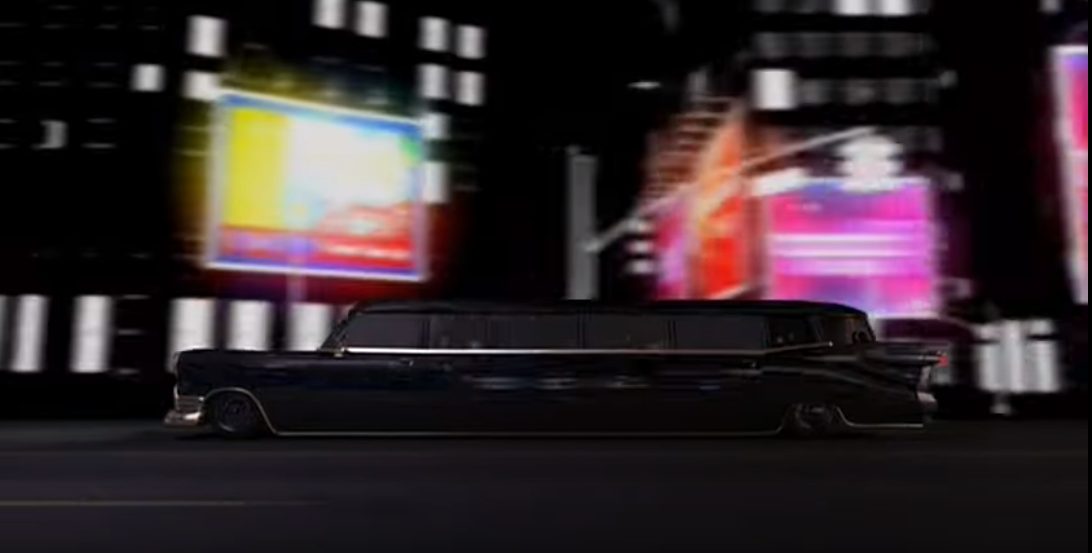
Speaking of which, the fanservice that Abunai Sisters Koko & Mika blatantly relies on as a key selling point barely gets off the ground before floundering. The large, variably-sized cleavage of the heroines in question are more off-putting than titillating, looking more akin to stuffed soccer balls plastered onto their chests. The fashionable spy getups they wear look more like cheap cosplay, while the deliberately sensual positions they often find themselves in feels at once forced and trite. Thus, despite all the ecchi elements you’d expect being crammed together all at once, chances are you’d be repulsed by the result. It’d be a perverse accomplishment if it wasn’t so cringe-worthy.
These aren’t even getting to the rest of the package. There’s hardly anything that could be construed as sight gags or actual jokes to be found. What innuendo-laden puns are present quickly overstay their welcome, as you could only use so many variations of the word “boobie.” Add in villains that are as ineffectual as they are repulsive, and you’re treated to what can charitably be described as an epic failure. It’s hard to believe that this came from the same studio that had created various Ghost in the Shell adaptations by then, and would go to produce the likes of Attack on Titan (2013-21).
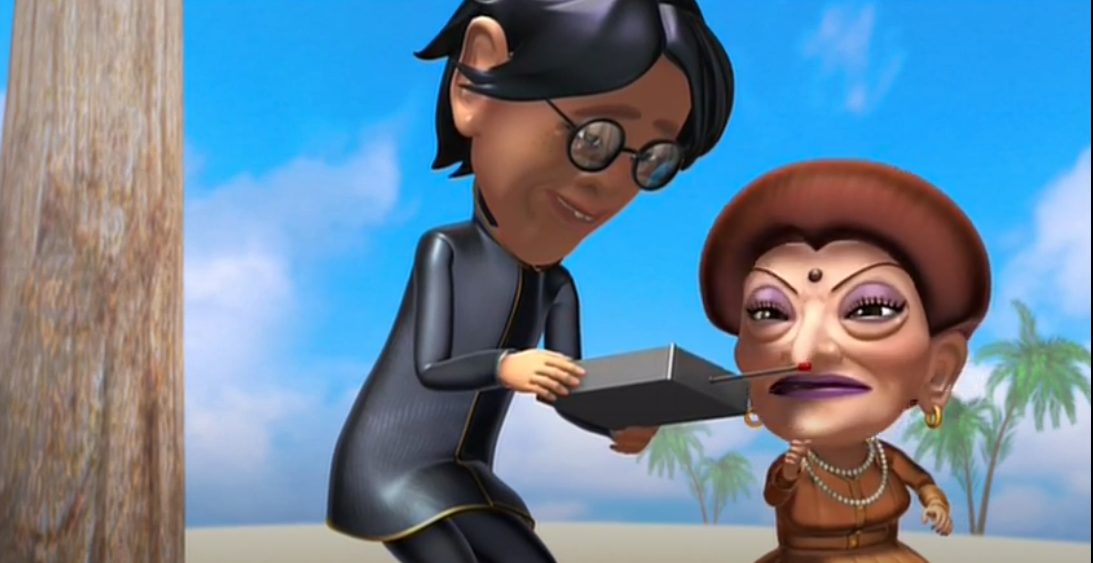
Even more difficult to fathom is how they executed this at all.
An Assault on the Senses
The visuals of Abunai Sisters, if they could be called that, are horrendously sub-par. Even for what was the norm for the late-2000s, the CGI quality seems straight out of a pre-rendered PlayStation 1 cutscene from a decade earlier, at best. Despite the rather cartoony art style, everything has a plastic sheen, while the textures are at once jagged and slightly blurred. Not that the shorts’ penchant for recycling the same locales repeatedly do much to make the sights more tolerable. Nor are Matsushita’s character designs much of an improvement, be it the heroines near-emotionless faces, or Madam Hokuruda looking like a bad caricature of Yubaba from Spirited Away (2001). At points, especially by the end, you could even see where the animators just left the models glitching.
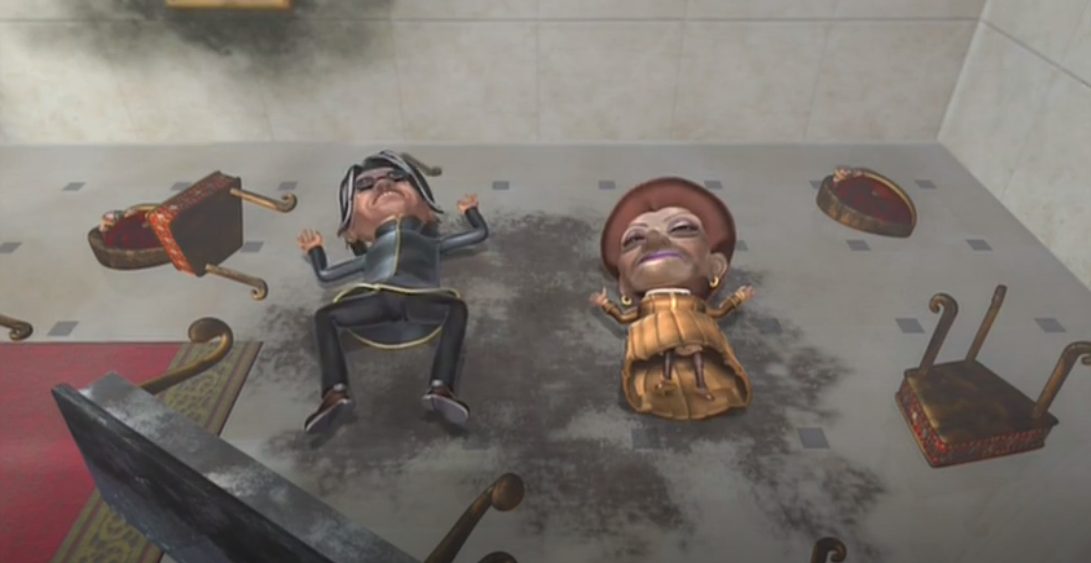
As if those weren’t already enough, the audio is just as atrocious. The voice acting, done entirely in English, would be passable for a gag skit, if not for how stilted the line delivery is. Beyond the amateurish performances, though, is how everyone’s pitch comes off as so squeaky that it’s not only unnatural, but can be painful to the ears. This isn’t to ignore the similarly grating-to-the-ears theme song, done by people who evidently couldn’t sing, or the cheap, bland background tracks that gets repetitive all too quickly. You’d be forgiven for wanting to mute it before the end of the first episode.
With all said and done, it’s unsurprising that Abunai Sisters was savaged by those who watched it. So much so, in fact, that only the first two episodes were broadcast on Japanese network AT-X. The rest were thought lost, at least until rips from one of the 265 DVDs known to have been sold were uploaded online for posterity in 2016, which had the voicework pitched up even further. As writer David Cabrera observed, any chances the Kano sisters had of making inroads in the anime scene were dead in the water, though it wouldn’t be the last time they’d attempt breaking in.
Akidearest’s video featuring Aburai Sisters shows that, with the episodes readily available on the Internet, its infamy isn’t likely to fade anytime soon. Circa 2020. (Source: YouTube)
Whether Production I.G. did this for a quick buck or purely out of obligation, given the clear lack of any genuine effort, Abunai Sisters Koko & Mika is nonetheless a nadir in its otherwise strong portfolio. That each episode is around three minutes long, though it often feels longer, is about the only thing that could be described as a positive. Still, if you’re eager for a sensory challenge, or to share some bile fascination with friends, you can’t go wrong with this anime.


